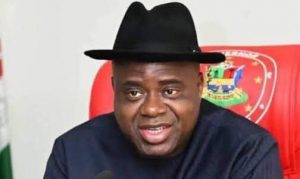Opinion: There could be trouble ahead for Saudi Arabia’s economy

The CEOs of BlackRock, Blackstone, SoftBank, Standard Chartered, Credit Suisse and others have all made a return this year after dropping out last year. The FII’s impressive guest list is indeed a testament to the high level of interest in Saudi Arabia ever since Crown Prince Mohammed bin Salman announced a sweeping economic reform program in 2016, dubbed Vision 2030. Promising to wean the kingdom off oil, the program aimed to open the Saudi market in new ways, including plans to privatize state-owned entities and to sell up to 5% of oil company Saudi Aramco in a public offering. But the plan’s progress has been uneven so far. Saudi Aramco did finally announce Sunday plans for an IPO, but it was originally slated for 2018 and had been paused or delayed multiple times. Now, Aramco is expected to list just 1% to 2% of the company on the Saudi stock exchange, as doubts linger over Mohammed bin Salman’s desired valuation of $2 trillion for the company. A smaller listing would still reap a windfall for Saudi Arabia, but far short of the $100 billion figure Aramco officials touted in 2016. On top of all this, the International Monetary Fund last month sharply cut Saudi Arabia’s 2019 growth forecast to 0.2% from 1.9%, citing a decline in the kingdom’s oil GDP resulting from the OPEC+ production cuts.Saudi Arabia has successfully pushed through some business reforms, such as loosening foreign ownership limits on its stock market and launching its inaugural tourist visa to tap into the potential of its tourism and leisure sectors. Indeed, its improvements led Saudi Arabia to climb 30 spots in the World Bank’s Doing Business Index this year. But the kingdom has been accused of committing glaring human rights abuses, which have marred its image and heightened reputational risks for investors. These include its alleged role in Khashoggi’s death, the detention and alleged torture of women’s rights activists and allegations of arbitrary arrests of hundreds of businessmen and royals in a supposed anti-corruption purge. The kingdom has denied all of the allegations. What Saudi Arabia really needs to spur its lagging economy ahead is increased inward investment. Foreign direct investment to Saudi Arabia cratered after the crown prince’s so-called anti-corruption roundup in 2017, falling to $1.4 billion in 2017 from $7.5 billion in 2016. Investment picked up slightly to $3.2 billion in 2018, and Saudi Arabia has undertaken several noteworthy reforms lately, including opening up four new industries to 100% foreign investment and launching some new projects in the non-oil sector.The kingdom’s investment authority said that billions in new deals were signed at the FII, according to the Saudi Press Agency. But how many of these deals will actually come to fruition remains unclear. According to the United Nations Conference on Trade and Development’s recent World Investment Report, lower oil prices and political factors have dampened investors’ enthusiasm for Saudi Arabia, and the crown prince has certainly done his country no favors on the political front. Another major misstep by Mohammed bin Salman, and investors could once more flee.Davos in the Desert certainly dazzles. But the kingdom doesn’t need all that glitz and glamour. What it should focus on is maintaining steady progress on strengthening its business climate by continuing to improve the ease of doing business, encouraging increased foreign involvement by loosening onerous ownership restrictions, and — most importantly — curbing reputational and political risks by ending the flagrant abuse of human rights.Riyadh can hold numerous investment summits, but without progress on making it easier to do business there and ending human rights abuses, the kingdom will be hard-pressed to gain the kind of large-scale, long-term investment that it needs.







